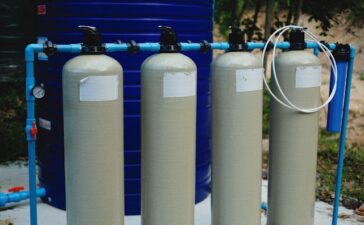Welcome aboard, aviation fans! If you’ve ever felt a rush of exhilaration when looking up at the sky, you’re in for an exciting ride. Aviation is more than just flying through the clouds; it’s a compelling combination of talent, precision, and sheer enthusiasm. Pilots – the daring men and women who have mastered the art of flying – are at the core of this awe-inspiring world.
But how does one go about becoming a pilot? What are the tricks to navigating the huge expanse above? In this blog post, we’ll look closely at pilot training programmes and go over all you need to know before starting your journey to becoming a professional aviator.
So buckle up as we prepare to lift off into the fascinating world of aviation instruction. It’s time to look into different types of pilot training programmes, learn how to choose the best programme for you, and learn about some of the problems that prospective pilots may experience along the way. Ready? Let us soar together!

Pilot Training Programme Types
Choosing the correct pilot training programme is critical when pursuing a career in aviation. There are various sorts of programmes available, each customised to a different set of needs and objectives. Let’s take a deeper look at some popular alternatives:
- Private Pilot Training: This initial programme is intended for people who want to fly as a pastime or for personal use. It teaches the fundamentals of aircraft handling and navigation.
- Commercial Pilot Training: This comprehensive programme focuses on advanced flight abilities, regulations, and commercial operations expertise for individuals seeking to be professional pilots.
- Instrument Rating Programme: This specialised training allows pilots to fly using just instruments in low-visibility conditions. It improves their capacity to manoeuvre purely on instrument readings.
- Multi-Engine Rating Programme: Pilots looking for work with airlines or charter businesses frequently enrol in this programme to learn how to fly aircraft with multiple engines.
- Certification Programme for Airline Transport Pilots (ATP): The ATP programme, which is the highest level of pilot certification, prepares pilots for leadership roles in commercial aviation by giving advanced flight training and significant theoretical knowledge.
Choosing the best pilot training programme is influenced by a variety of criteria such as career goals, financial restrictions, time limits, and personal preferences. Before making a decision, it is critical to extensively research various programmes.
Keep in mind that each sort of pilot training programme has its own set of requirements and eligibility criteria; make sure you meet them before participating! Consider visiting other flight schools and interacting with existing students or instructors to learn about their experiences.
Starting any form of pilot training can be difficult, but it can also be quite rewarding! Set defined goals for yourself and maintain discipline in your study and practise sessions to stay motivated throughout your journey.
So, whether you want to be an airline captain or just enjoy the excitement of flying for fun, there’s a pilot training programme out there for you! Take your time researching your alternatives and selecting a programme that fits your goals and desires. Fly safely!
Advice on Choosing the Best Pilot Training Programme
Choosing the best pilot training programme is an important step in realising your ambition of becoming a pilot. With so many options available, deciding which programme will best suit your requirements and ambitions might be overwhelming. Here are some pointers to help you make an informed choice:
- Research, research, research: Begin by collecting information about various training programmes. Look for institutions with a good reputation, skilled professors, and modern facilities.
- Consider your career goals: Do you want to be a commercial airline pilot, a private jet pilot, or a helicopter pilot? Different programmes specialise in different aspects of aviation, so pick one that matches your goals.
- Examine the curriculum: Examine the course structure and syllabus provided by each programme. Make certain that it covers all of the necessary areas, such as flight theory, navigation abilities, aircraft system knowledge, and emergency procedures.
- Go to the flight school: If possible, go to the flight school you’re thinking about attending. This will allow you to visit their facilities in person and meet with current students or instructors.
- Verify accreditation and certifications: Make certain that the training programme has been recognised by relevant aviation authorities or regulatory agencies in your nation or region.
Keep in mind that selecting a pilot training programme is a personal decision based on your unique circumstances and preferences.

Mastering the Art of Flight: An Examination of Pilot Training Programmes
Aviation is an exciting sector that provides various options for individuals who aspire to fly. However, becoming a pilot needs effort, ability, and a willingness to overcome obstacles. In this post, we looked at the world of pilot training programmes and examined how prospective pilots might find the best programme for them. Now, let’s look at some of the most prevalent difficulties encountered throughout pilot training.
- Time Management: Excellent time management skills are required for pilot training because you will need to balance ground school lessons, flight hours, and exam preparation. It might be difficult to balance these duties, but learning efficient time management skills will help you stay on track.
- Financial Constraints: The high expense of pursuing a profession in aviation is a significant barrier. Pilot training programmes can be very expensive, which may discourage some people from pursuing their goals. It is critical to investigate various finance possibilities, such as loans or scholarships, in order to make your dreams a reality.
- Mental and Physical Endurance: Being a pilot involves mental sharpness as well as physical endurance because flying is both mentally and physically demanding. Pilots must pass stringent medical exams to guarantee they are fit for flight operations.
Overcoming these obstacles necessitates perseverance, devotion, and a genuine love of aviation.





